Thailand kicked off its annual water buffalo festival on Monday in the eastern province of Chonburi, with an aim to celebrate the animals at a time when their contribution to agriculture has been replaced by tractors and other modern devices.
The water buffalo racing festival dates back more than 150 years, according to some estimates. On Monday, the festival-goers enjoyed interactive exhibits and photo opportunities at the venue where the animals were adorned in flower crowns and their riders wore traditional Thai attire.
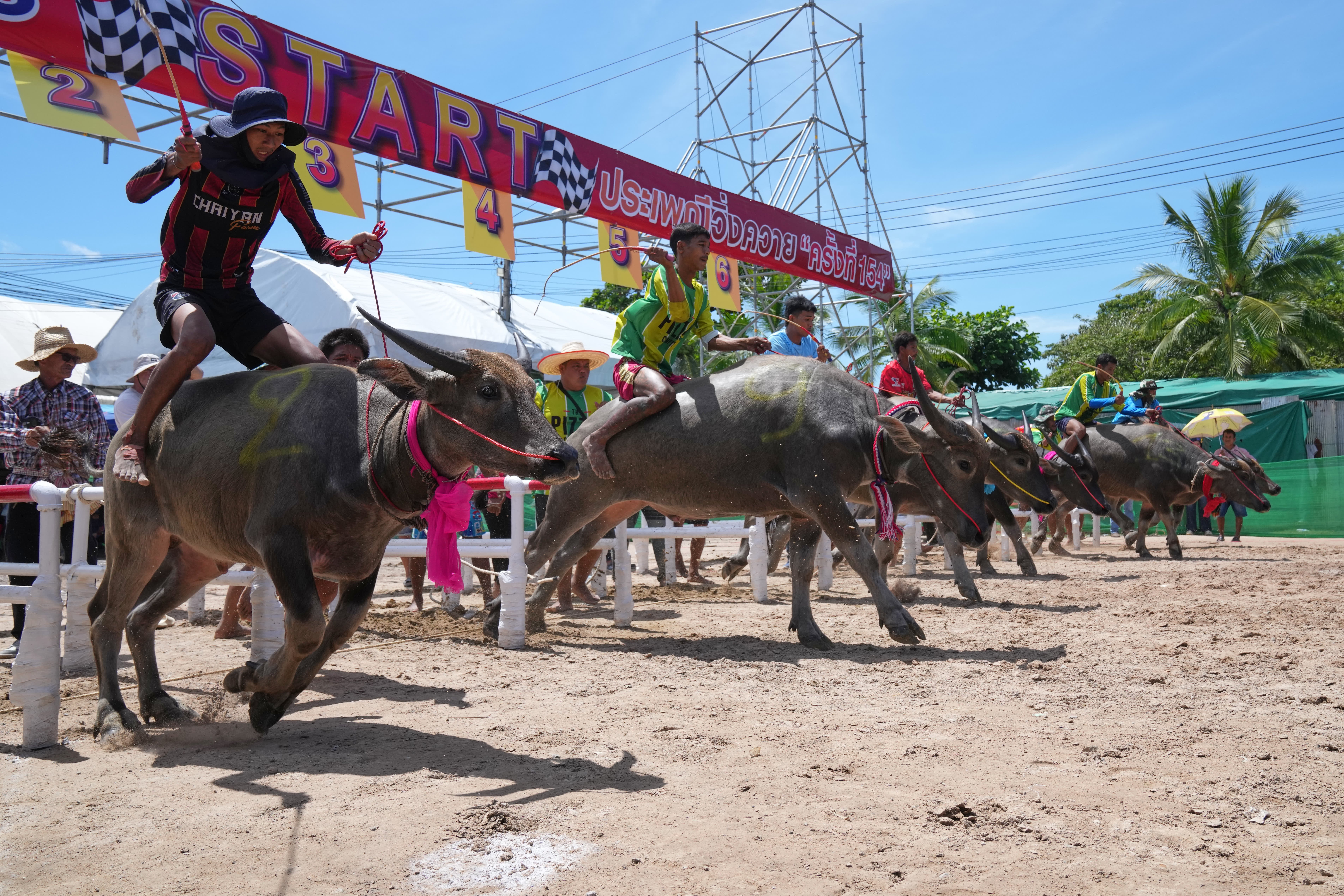
For many in Chonburi, about an hour away from the capital Bangkok, the festival is more than entertainment – it is a celebration of a longstanding cultural connection. In recent decades, it has gained in popularity and has become more of a tourist attraction as well.
The Thai water buffalo, or known locally as “kwai”, have historically symbolised strength and prosperity, serving vital farming roles. However, with mechanised farming, their numbers have declined, prompting conservation efforts to protect the species, support breeders, and promote sustainable agriculture.
“Although buffaloes can still work in the field, they cannot compete with machines,” said Thawatchai Daeng-Ngam, a farmer whose family keeps 30 buffaloes.
“Buffaloes are still important to me. It’s like what they said: ‘People raise buffaloes, and buffaloes raise people.’ It’s like a family member,” he told the Associated Press.
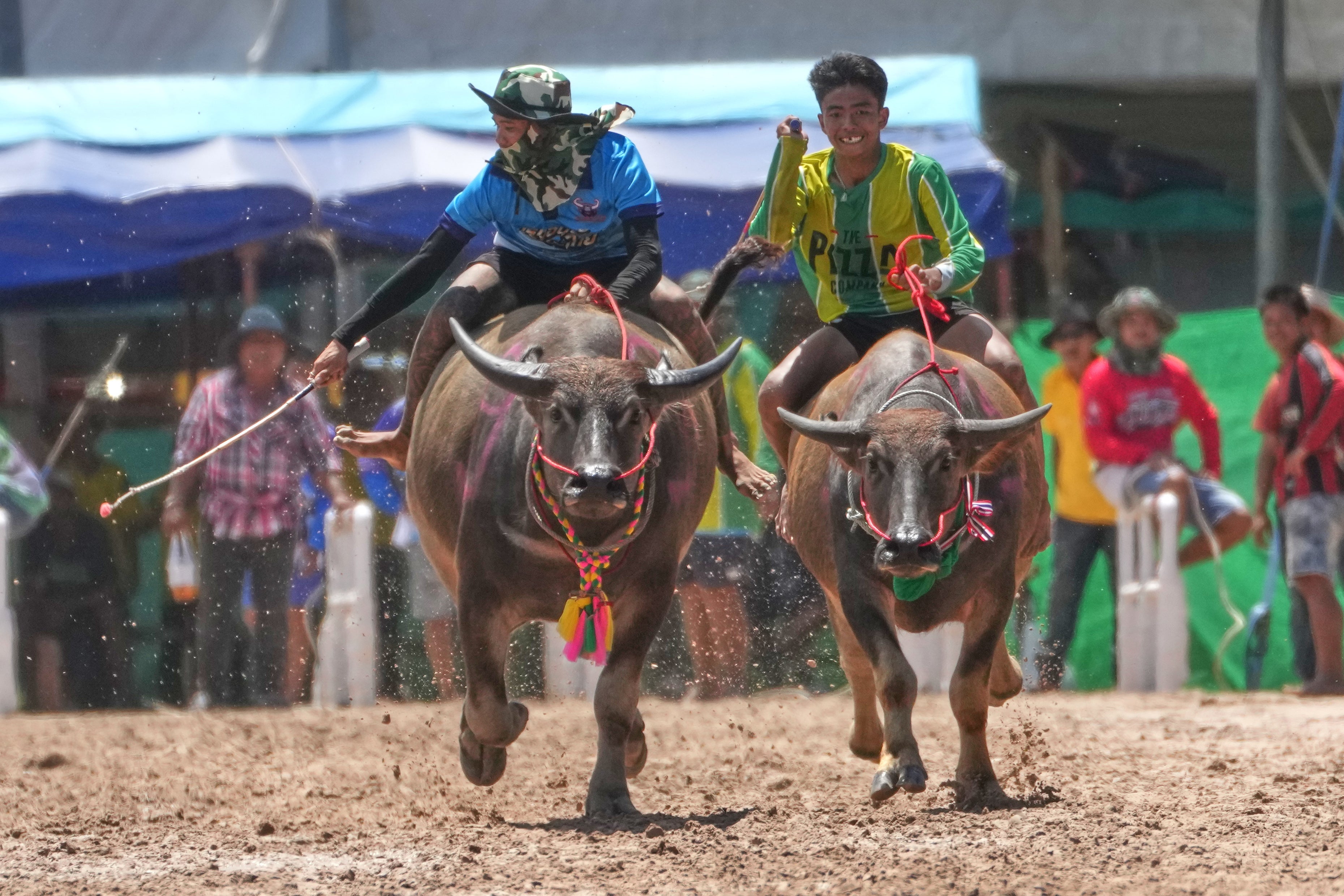
Mr Thawatchai’s five-year-old black buffalo named Tod, made his first appearance in the beauty pageant for the animals on Monday, delighting both judges and spectators.
Mr Thawatchai, who said raising buffaloes for competitions was his hobby, also raised Tod.
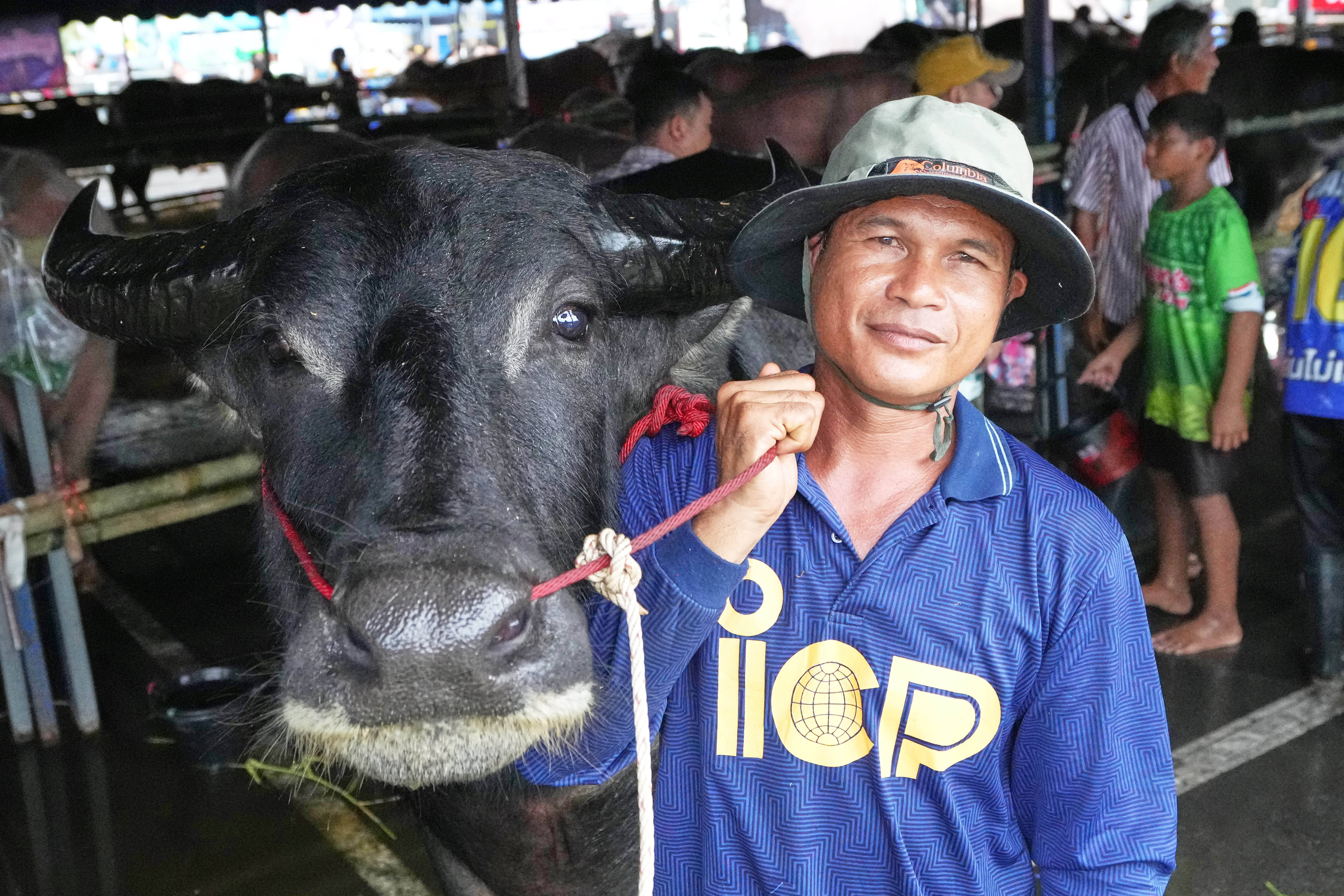
Thailand’s buffaloes, once vital for ploughing fields and carrying heavy loads, have gradually shifted from farm work to show animals, especially as tractors have replaced them in agriculture.
The Chonburi water buffalo racing festival featured a colourful parade of students performing traditional Thai dances and buffaloes pulling wooden carriages adorned with flowers.
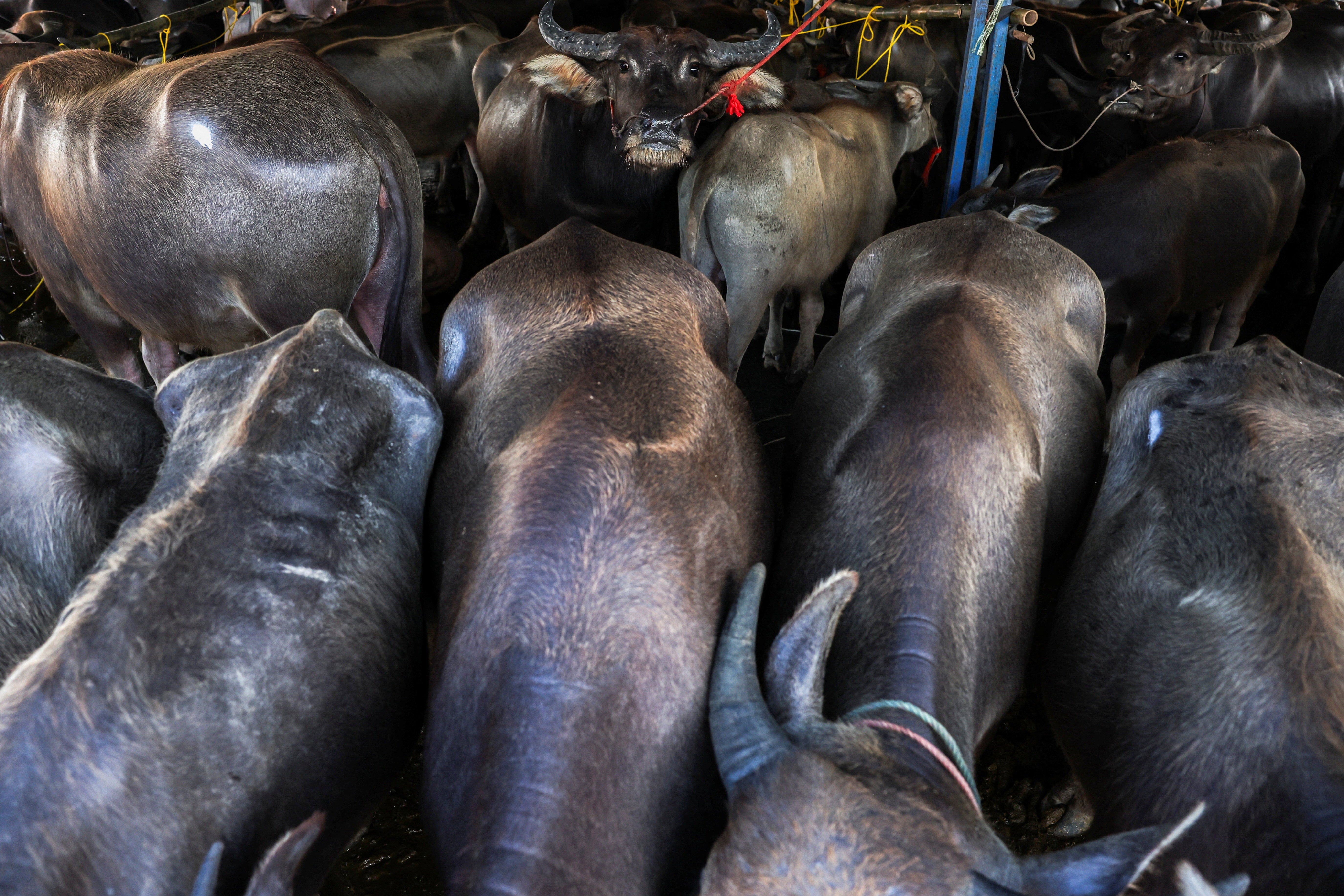
Judges evaluated the contestants on horn size, hoof condition, and overall physique. The racers train with their buffaloes for weeks.
Besides, the pageant, buffalo racing thrilled spectators as jockeys rode the animals down a 100-metre track.
Local authorities emphasise that these events help sustain interest in water buffaloes and support farmers.
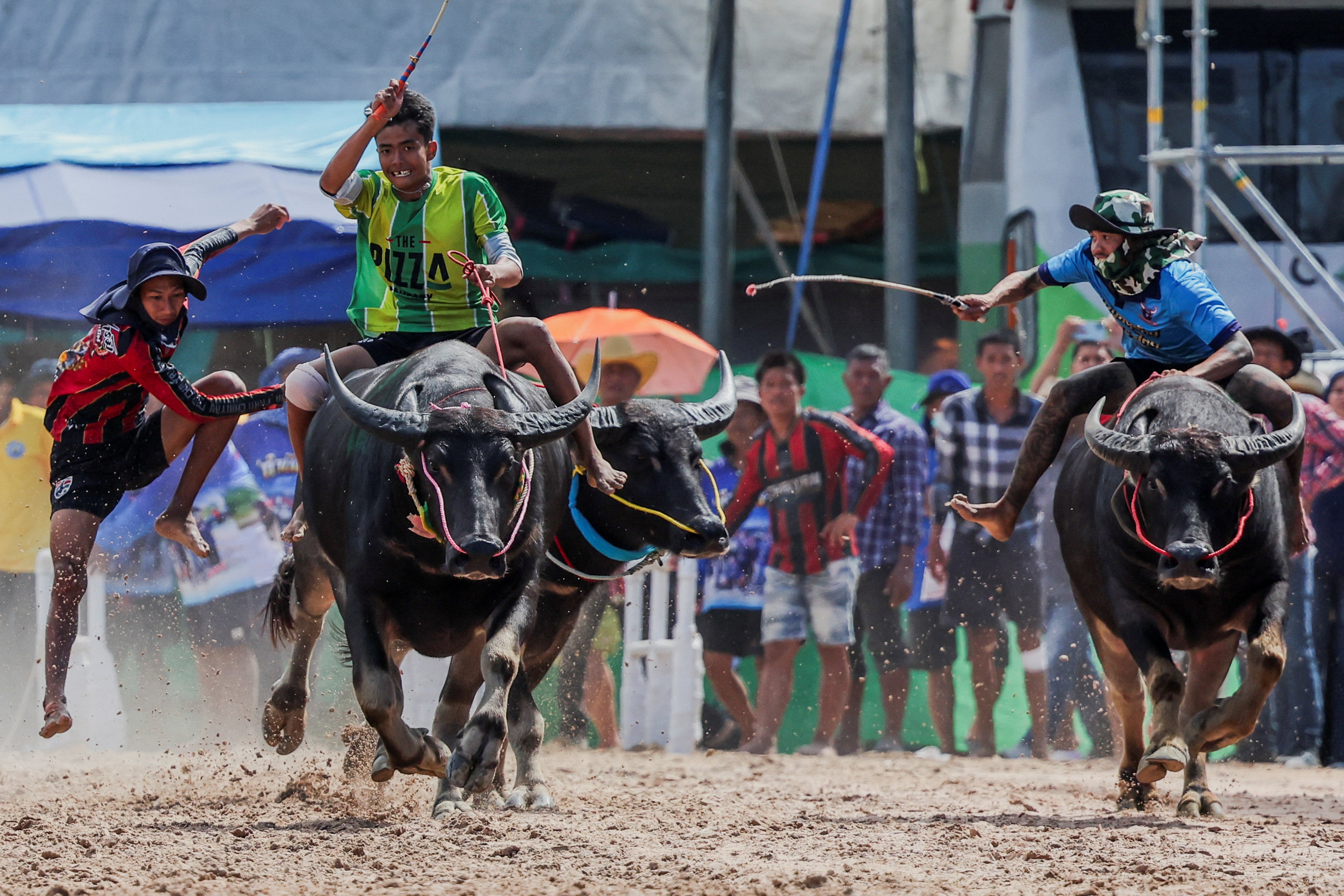
Papada Srisophon, assistant to the village chief at a nearby livestock centre where farmers are trained in buffalo-rearing techniques, said: “Each year it (the festival) has become bigger and bigger.
“Without this activity, they won’t know what to do with their buffaloes, and they won’t be motivated to keep their buffaloes.”
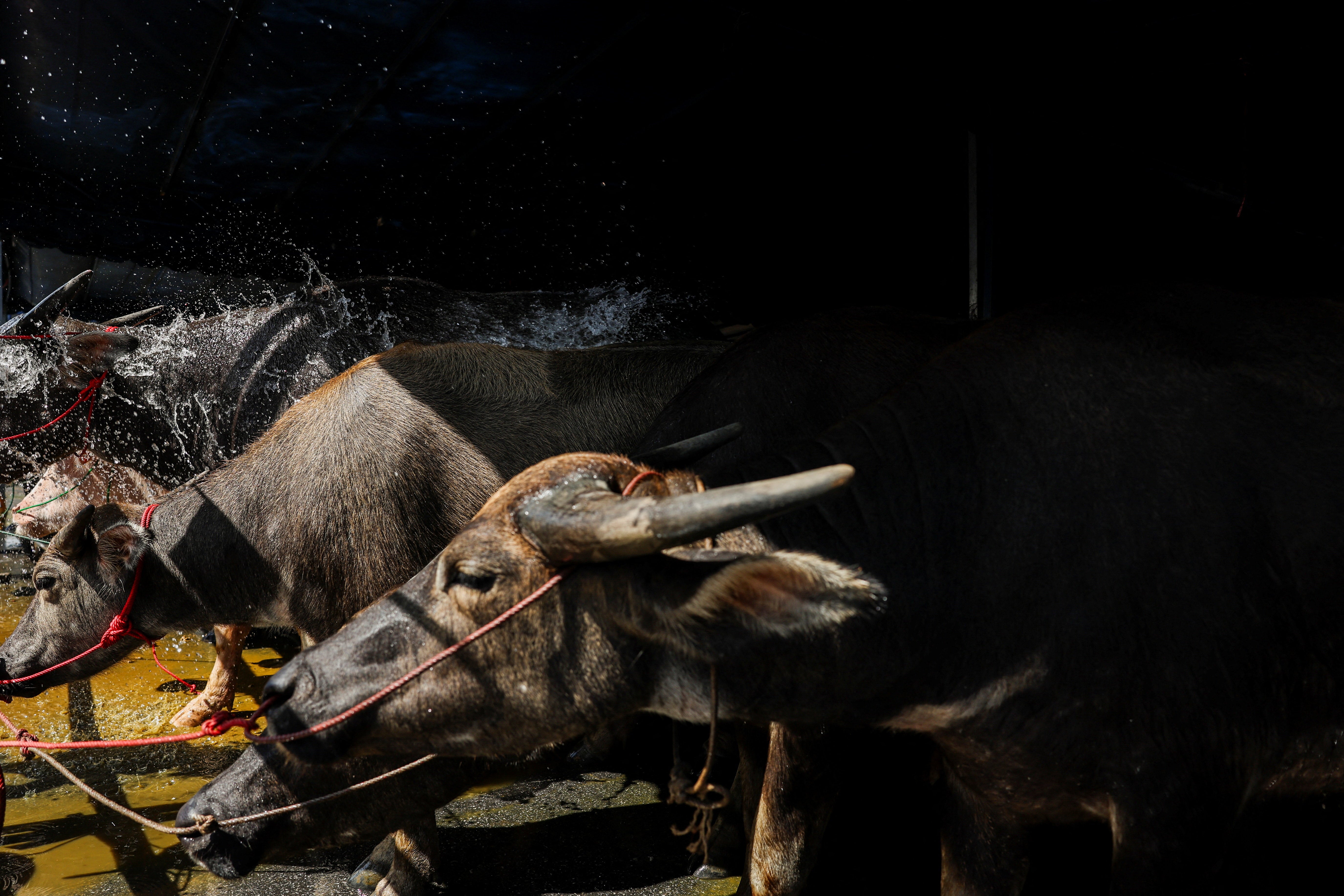
Government programmes now assist with the breeding and conservation of these buffaloes, while contests motivate the raising of healthy and well-cared-for animals. In fact, in 2017, the Thai government designated 14 May as Thai Buffalo Conservation Day.
But the festival has its dangers, some admit. In 2022, racer Noppadon Yindeesuk, then 45 years old, admitted that the tradition can be hazardous.
“It could be a bit dangerous if the buffalo are running too close to each other because it could cause an accident – so the riders must be careful,” he told AFP.
“I compete in buffalo racing because I am trying to preserve our Chonburi traditions about good rice, good buffalo.”
Thailand to seize influencer’s ‘pet’ lioness after animal attacks two people
British tourist faces death penalty for ‘drug smuggling’ in Thailand
Indonesia school collapse: 61 students dead as rescuers find more bodies
Malaysian cop’s call to punish girls in statutory rape cases slammed by rights groups
Indonesia school collapse death toll jumps to 36 as desperate search reaches day 7
Country blocks TikTok’s licence with 100 million accounts at risk







